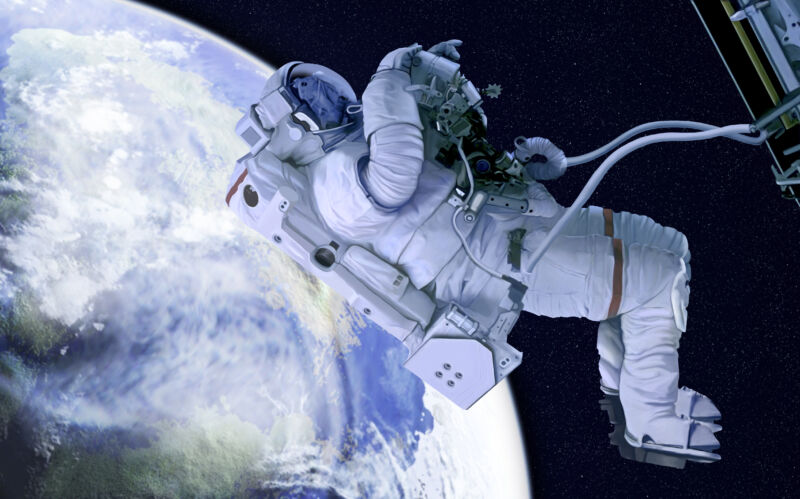
If you ask a US Navy submariner the most visceral part of the underwater and underway experience, you’ll get the same answer almost every time—it’s the smell. “Eau de Boat,” as we sailors called it, is a unique combination of diesel fuel, machine oil, laundry hamper, and flatulence. To the best of my knowledge, nobody’s ever attempted to bottle and sell Eau de Boat—but a Kickstarter campaign is trying to do the same thing for space travel.
But why, though?
In late June, the US National Space Council’s Executive Secretary Scott Pace expressed his desire to support companies like Virgin Galactic and Blue Origin in developing minimal commercial space tourism—brief suborbital round trips which take a few people above the atmosphere, then return them to the same spot they started. Virgin Galactic even plans to send some NASA astronauts to the International Space Station, eventually.
But these are likely to be small and expensive affairs that very few people will get to experience, for several more decades at least. In the meantime, space enthusiasts can more accessibly and affordably experience the ISS to some degree in virtual reality. Even with six degrees of freedom, the experience is sharply limited.
Oculus and its competitors are unlikely to figure out a way to simulate microgravity—but if you want to smell the ISS while you virtually tour it, that might be an option.
A brief history of space stink
Believe it or not, this isn’t the first effort to bottle up the smell of space travel. NASA tries to simulate the experience of crewing its vehicles and running its missions as faithfully as possible during ground training, leaving its astronauts as prepared and confident during the real thing—and if you believe the Eau de Space Kickstarter campaign, that includes the smell.
Decades ago, NASA contracted specialists to developed the “smell of space” to help train astronauts before launch into orbit. NASA’s goal of simulating Space during training is to eliminate any surprises Astronauts might experience in Outer Space. Practice makes perfect, and it is Rocket Science. The Smell of Space has been locked behind “Need to Know”, Astronaut only field training, and Red Tape for years. Through shear determination, grit, a lot of luck, and a couple of Freedom of Information Act (FOIA) requests, we got it out.
We’re not too sure how well this claim stacks up to reality. The Kickstarter campaign itself is notably lacking in links to back up its claims. In a CNN interview, Eau de Space founder and chemist Steve Pearce said NASA had contracted him to develop the simulated odor in 2008—which would be a cool story by itself, but it doesn’t match up with the Kickstarter’s campaign of a “decades old” program that had to be unearthed through FOIA.
Finding astronauts willing to describe what space travel smells like isn’t hard—Peggy Whitson described the ISS as smelling like bitter, smoky gunpowder in 2002, and Don Pettit describes eau de spacewalk as a sweet, metallic tang similar to arc-welding fumes.
When describing his 2008 work for NASA, Pearce himself told the Atlantic in 2012 to “imagine sweaty feet and stale body odor, mix that with nail polish remover and gasoline… then you get close.” This doesn’t sound like a commercially viable product, but it certainly sounds like Eau de Boat to me.
This isn’t the first time a company has claimed to offer the bottled smell of space to consumers—aviation company Lockheed Martin produced a limited batch of a scent it called “Vector” for April Fools’ Day last year. Our own Eric Berger got a chance to sample Vector, and he pronounced it to be dark, musky, charcoal-like, and similar to freshly spread mulch.
Caveat caelum pedestrem
Pearce’s Kickstarter campaign is entirely free of any description of what the Eau de Space product actually smells like. It might faithfully reproduce the mostly human funk of a crewed machine with recycled air—or it might forego the human odors and focus on the sharp, acrid, ionized smell that wafts in from a spacewalk. If you want to find out, it will cost you $15 per 4-ounce bottle.









